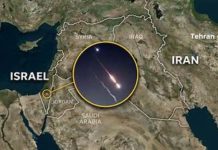Dr M Ail Hamza
The number of Palestinians killed by a massive Israeli air assault against the Gaza Strip has reached to 2,215. There is a high probability that death toll would have reached to 3,000 by the time you are reading this article. Though five permanent members of United Nation Security Council (UNSC); China, France, Russian Federation, United Kingdom, and United States agree on the necessity to ending the humanitarian crises in Gaza, but deep divisions remain on exactly how to do that. On October 17, Russian Federation drafted and tabled a resolution calling for humanitarian immediate ceasefire between Hamas and Israel in Gaza, was supported by China but received a clear rejection from three other members of UNSC; the western collision. The rejection is rightly stated by the Russian diplomat “a blow to humanitarian efforts”.
In fact, we are currently witnessing a grave escalation of violence, and the international community anxiously anticipates the UNSC to intervene in order to halt this bloodletting. However, delegates from Western nations, who have opposed the resolution, have essentially dashed the hopes of the global community for curbing this Israeli brutality.
The United States’ rationale for rejecting the resolution was surprisingly illogical. They argued that because the resolution didn’t condemn Hamas, it should be discarded. This perspective seems to imply that condemning Hamas and preserving lives should go hand in hand; otherwise, innocent people must perish. Is this the proposal put forth by the U.S. delegation at the UNSC? Does such a notion align with morality, international legal principles, or the UNSC’s standards when responding to acts that harm innocent civilians? It appears to be an unwise and contradictory stance.
Believe it or not, it is essential to revisit the roles and responsibilities of the UNSC. Its primary obligations include preventing and resolving conflicts, promoting human rights, and maintaining peace. Foremost among these responsibilities is the duty to prevent and resolve conflicts by mediating between warring parties, facilitating negotiations, and promoting diplomatic solutions. However, when millions of innocent lives are at risk due to actions by Israeli forces, it becomes imperative to call for an end to such horrific and heinous acts. The UNSC’s moral authority is questioned when its failure to condemn Hamas is used as a justification for allowing Israel to continue actions that result in the killing of innocent civilians. It appears that the UNSC may be unable to effectively fulfill this role.Top of Form
Undoubtedly, the UNSC carries the responsibility of establishing international order and stability, which encompasses arms control agreements, non-proliferation efforts, and counterterrorism initiatives. Certainly, maintaining global security requires fostering an environment conducive to peaceful cooperation among nations. However, this responsibility of the UNSC does not serve as a valid justification for rejecting the Russian resolution aimed at halting the ongoing violence and loss of life in Gaza. It suggests that when the U.S. criticizes Russia for not mentioning Hamas in the resolution, the U.S. may be seen as supporting the tragic loss of human lives in Gaza at the hands of Israeli forces.Top of Form
The Israeli occupation of Gaza and Palestine has seen numerous phases, and it is essential to swiftly assess the longstanding consequences of this issue. This occupation has given rise to profound humanitarian and political ramifications for the Palestinian population. Notably, the blockade of Gaza has resulted in a humanitarian crisis, characterized by insufficient access to basic necessities like food, clean water, and healthcare. Many Palestinians, both residing within their native territories and within the diaspora, have experienced displacement due to the conflict. An illustrative case in point is the Nakba of 1948, commonly referred to as the Palestinian Catastrophe, which marked the dismantling of Palestinian society and homeland, forcing hundreds of thousands of Palestinians from their homes. Those who remained have had to struggle with checkpoints, obstacles, and a rigorous permit system, severely constraining their access to essential services, education, and healthcare within their homeland. Furthermore, the Palestinian territories grapple with economic adversity stemming from restrictions on trade, investment, and the movement of people and goods.
This all caused the birth of militant groups. The oppression and cruelty by the colonial rule, is a breeding ground for militant groups. Thus, groups like Hamas happen. Why UNSC could not nip the evil in the bud; the evil of colonialism. It’s ironic that the permanent members of the UNSC, who rejected the Russian resolution, have historical ties to colonialism.
Since 1948 more than hundred thousand Palestinians have been killed, and more them triple been displaced or seriously injured. Ultimately, a peaceful resolution remains a critical goal, as the continuation of the Israeli occupation perpetuates a cycle of suffering and instability in the region. However, it seems that the UNSC is ineffective in achieving this goal, isn’t it?
The ongoing misery faced by Palestinians underscores the urgency of finding a peaceful and just resolution to the Israeli-Palestinian conflict. Addressing these long-standing issues will pave the way for a more stable and secure future for both Palestinians and Israelis. But first thing first, “ceasefire”. Top of Form
What are the insecurities UN security council having in calling the shorts to ceasefire? This is a query that every rational thinker is likely to pose.

















